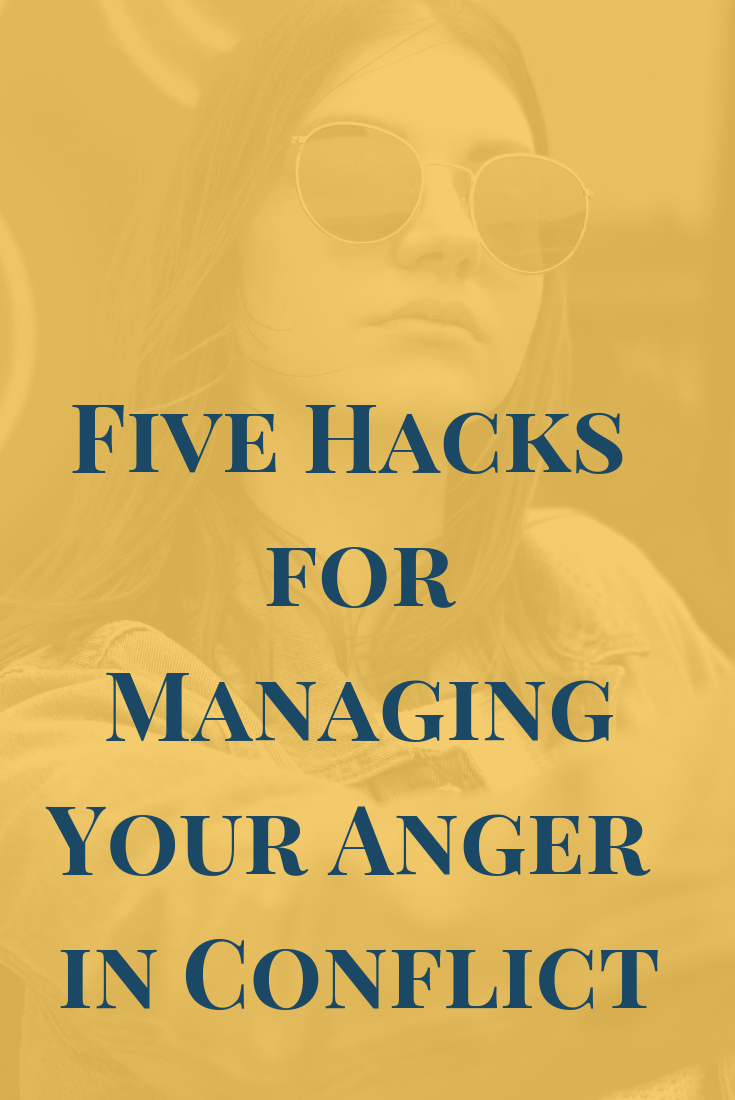A client recently asked me for some strategies to engage in conflict without appearing angry. As I’ve said in previous articles, it’s no secret that most people fear conflict and will go to great lengths to avoid it. Managing our anger can be challenging at times. Most people either become defensive or worse, they’re boiling internally while trying to appear calm. Skilled mediators develop practical strategies to avoid being pulled into the emotional whirlpool of our clients’ conflicts.
Here are five hacks from my mediator toolbox for managing your anger in conflict situations:
1. Raise Your Eyebrows
Even the best mediators can feel hooked by emotions of clients, from crying to rage. A mediator colleague of mine taught me this practical trick when this happens: raise your eyebrows to mask your emotions.
It feels funny, but it dries out your eyes and hides your urge to grimace.
This simple hack really works to hide your anger.
Try it out in front of the mirror.
2. Find Your Shield
I once heard this saying,
“Anger is the warrior’s shield, not the warrior’s weapon.”
I’m not sure of its origin, but I have relied on it in many conflict situations.
When I was a young mother of three sons, after I had supported my kids’ dad through medical school and was just accepted to law school myself, he left for a much younger woman. I was in shock. Friends and family were angry with him. When they supported me, he turned his rage toward me throughout our painful divorce. It was nearly unbearable. He spewed vile accusations at me. Instead of reacting, I imagined his unkind words hitting a shield. That image, of toxic words slithering to the ground, got me through the darkest period of my life.
The proverbial “shield” has served me well when I feel angry.
I share it with students in our mediation courses as well as with mediation clients. Several have told me they’ve either used it or developed their own metaphorical shields to manage angry emotions.
3. Go to the Stadium
In times of conflict, we often feel isolated, singled out, and marginalized. A mediator colleague once said that when this happens, she imagines a stadium filled with all the people who love her, cheering her on with support.
When you feel panicked in conflict, remember the people who have your back.
With that image of people supporting you, your opponent will likely seem less intimidating. You should find the fear of conflict melting away. This trick has served me well many times.
4. Reduce Your Fear of Conflict
When it comes to fearing conflict, I don’t mean, “Get over it.” I mean it is possible to build your resilience to conflict, as I discussed in a previous article. When I asked my client why she’d want to do hide her anger, she explained she wishes she could respond to conflict calmly. She wanted to be a better listener. She wanted to be more rational and have self-control in conflicts.
In other words, she wanted to know how to engage confidently in conflict.
It is possible. Mediation provides parties with a safe space for working through conflicts. A coach can help individuals explore their own conflict engagement strengths and resources. Conflict resolution and mediation courses help people discover the triggers that make us feel angry and strategies for managing those emotions when in conflict.
5. LOL
Tensions running high at the office? If the timing is right, humor can be a game-changer. There are dozens of office-appropriate joke books.
There’s a reason it’s called comic relief.
I’m happily remarried to a good husband who is marvelous at pivoting from conflict to laughter. For example, one blazing hot Arizona day, while we were leaving the gym, I made a wrong turn into a traffic jam, making us late for dinner with friends. I tensed up and grumbled about my mistake, the endless congestion on the road, and the predicament I had caused. Dan could have easily poured fuel on the flame by pointing out my error or -- worse -- telling me to calm down. Instead, with a twinkle in his eye and a big smile on his face, he joked, “The best part of this day is that we get to spend extra time together in our air-conditioned car!”
Humor isn’t only calming, it also puts things into perspective.
In my example, there was no real crisis, other than the one I was conjuring in my mind. The “conflict” melted away in an instant and with it the tension on my face and throughout my body. We were both relieved and, needless to say, we had a wonderful evening.
By no means do I perfectly manage my emotions when the conflict involves me.
When I mediate, however, it is undeniably easier to be impartial and emotionally distanced from the impact of the conflict. In addition to good listening, validation, empathy and other skills, most mediators have determined practices that help us to remain calm when clients are tense. When you feel your emotions may spiral out of control in the heat of a conflict, I hope you will find any of these five hacks useful for managing your anger.







